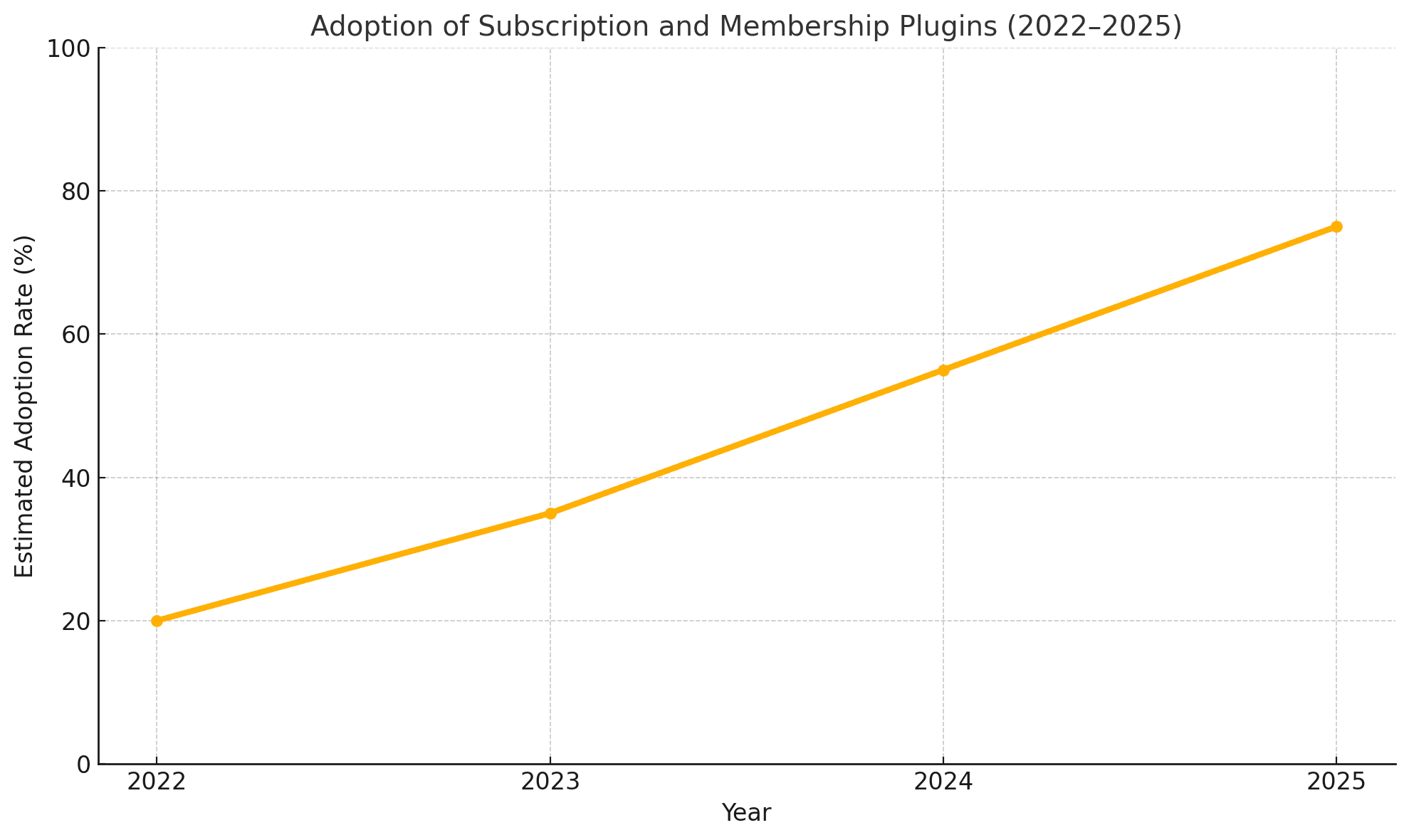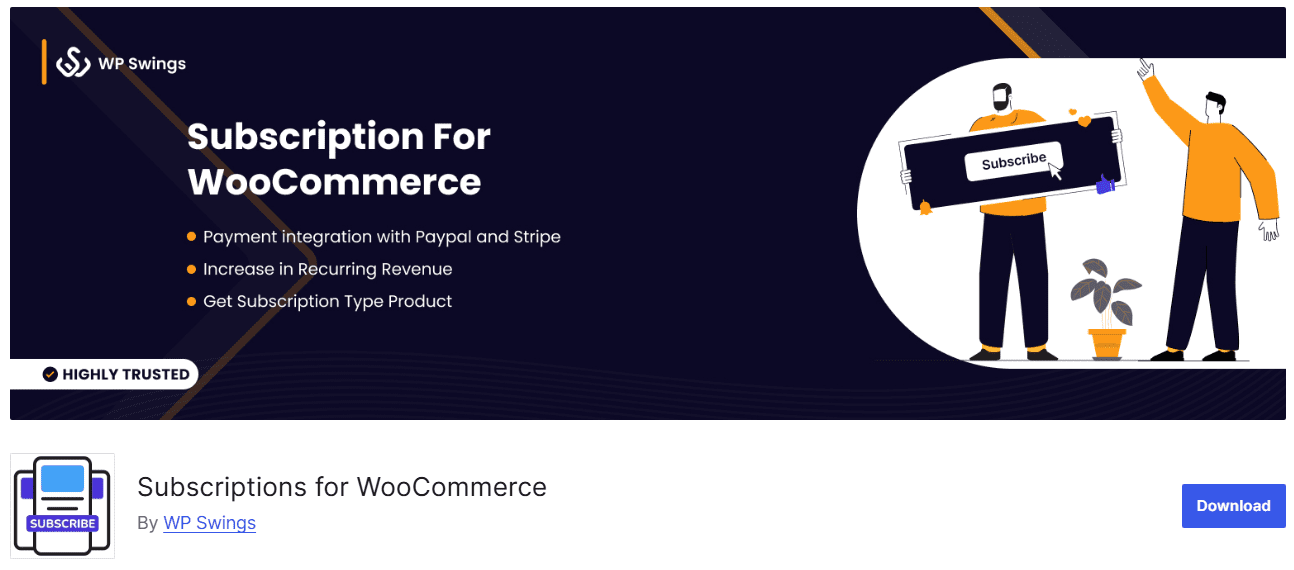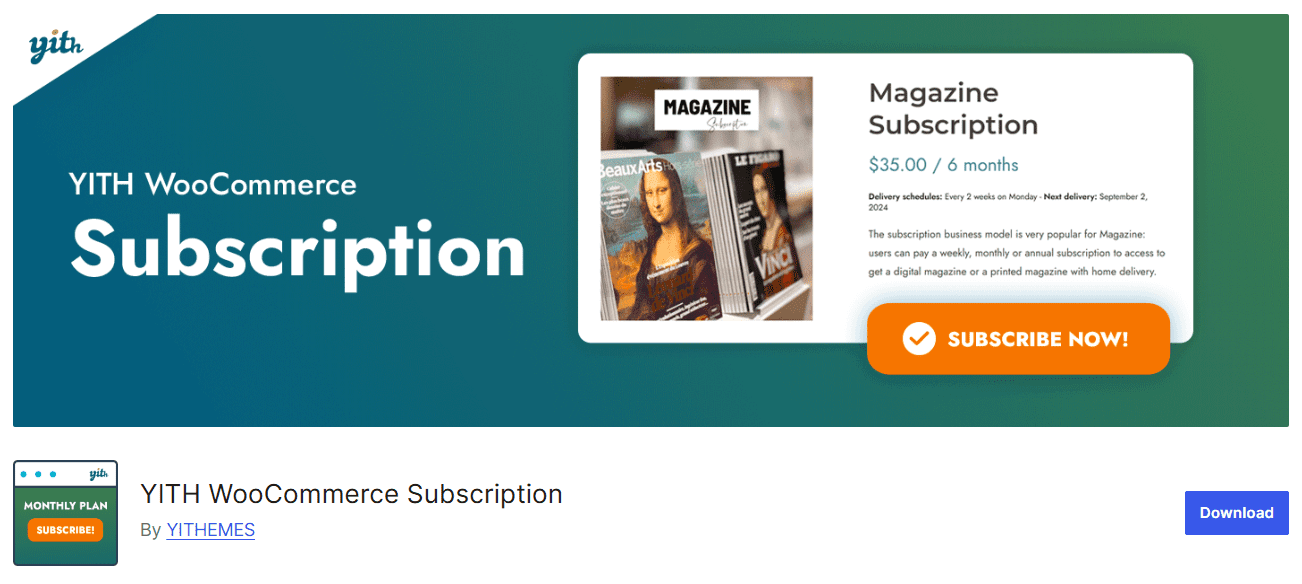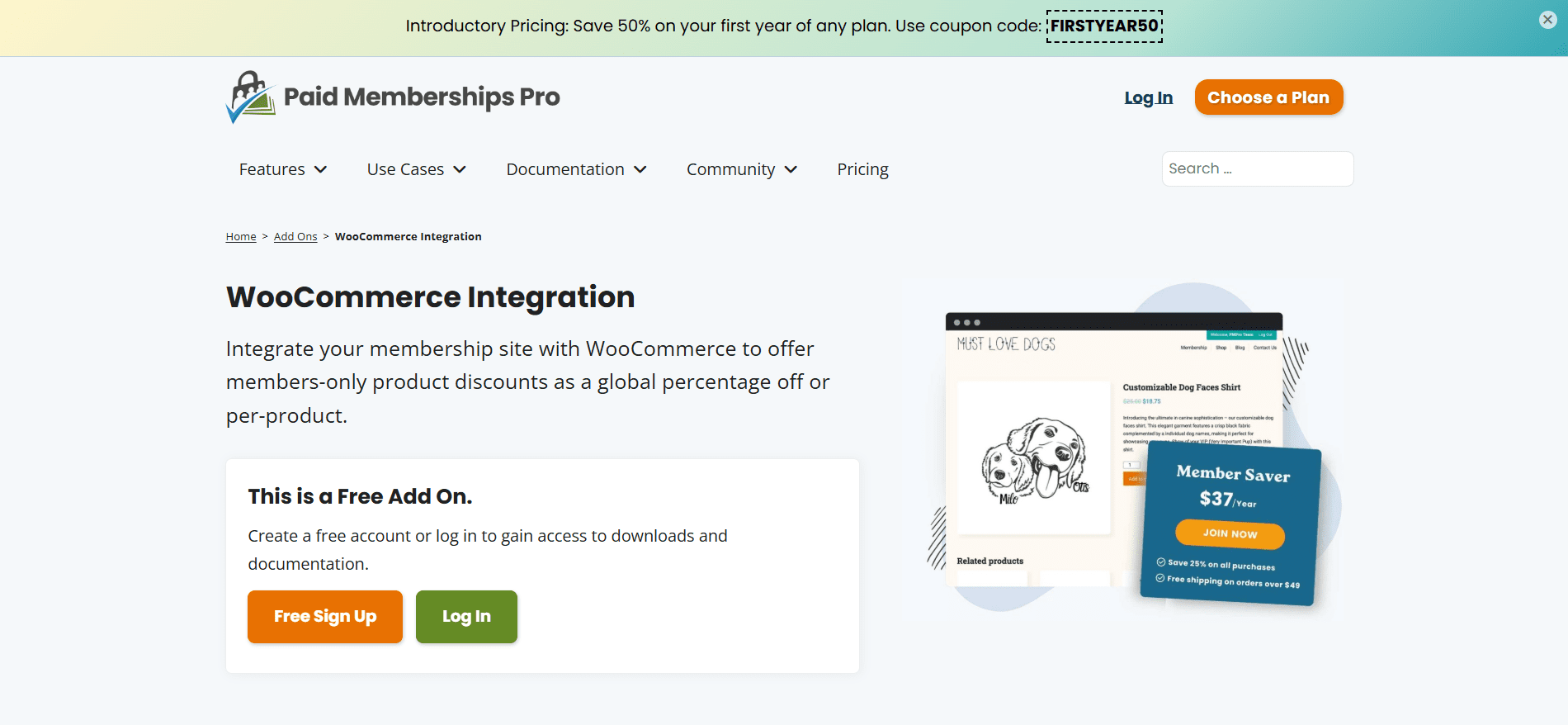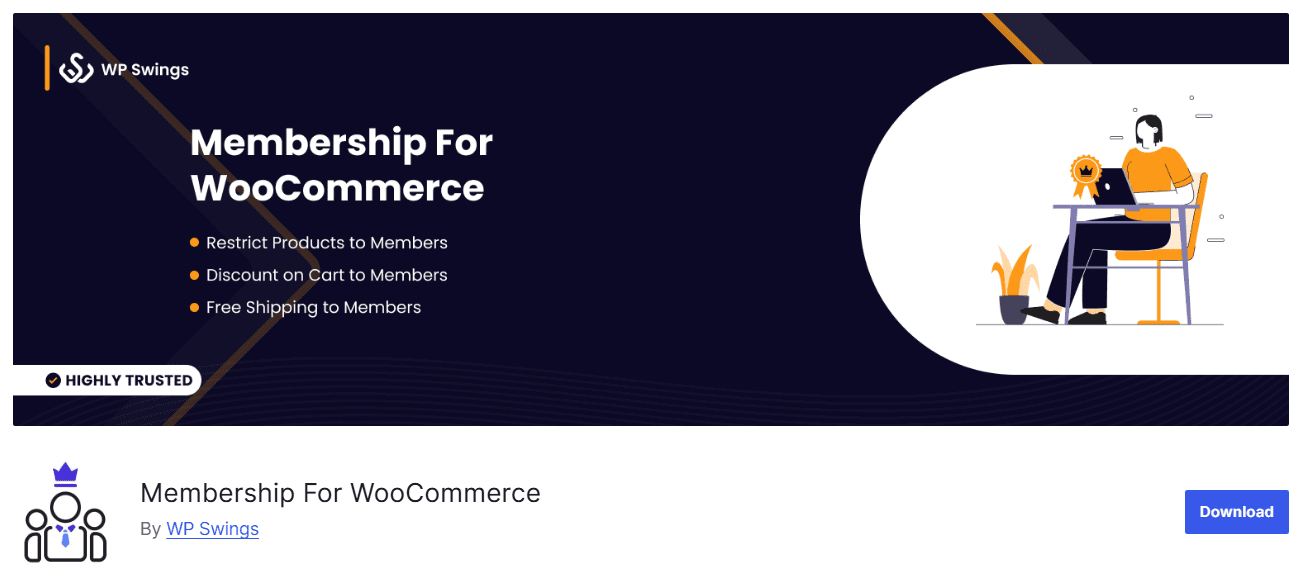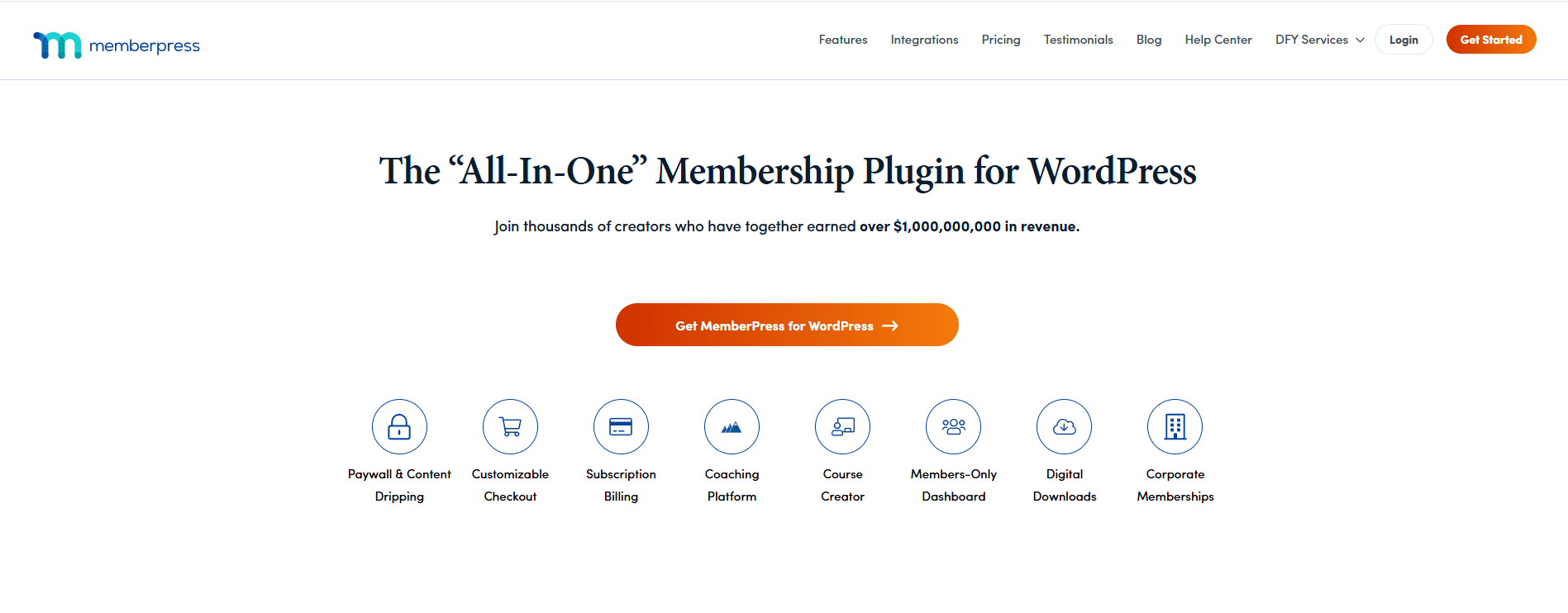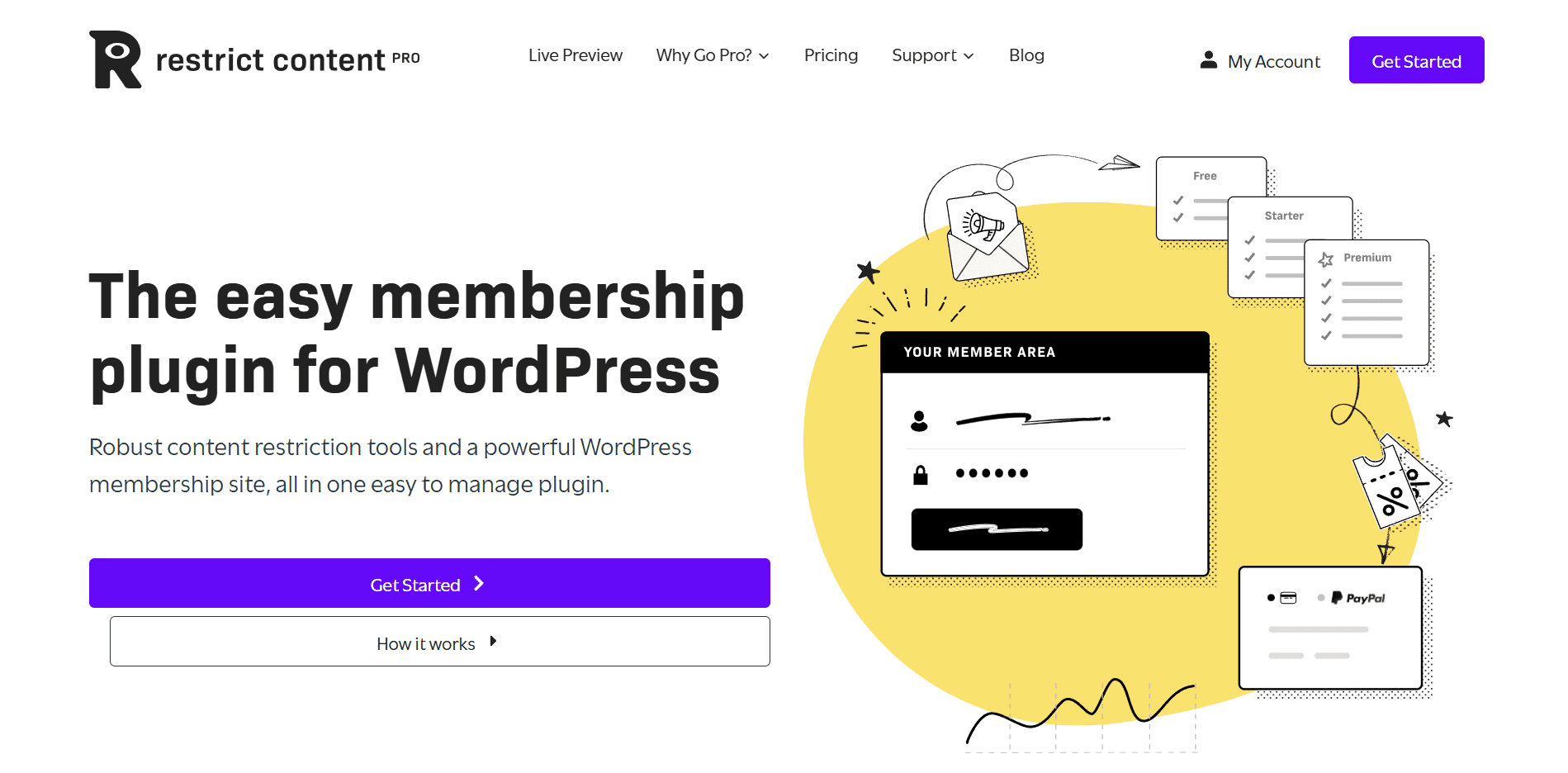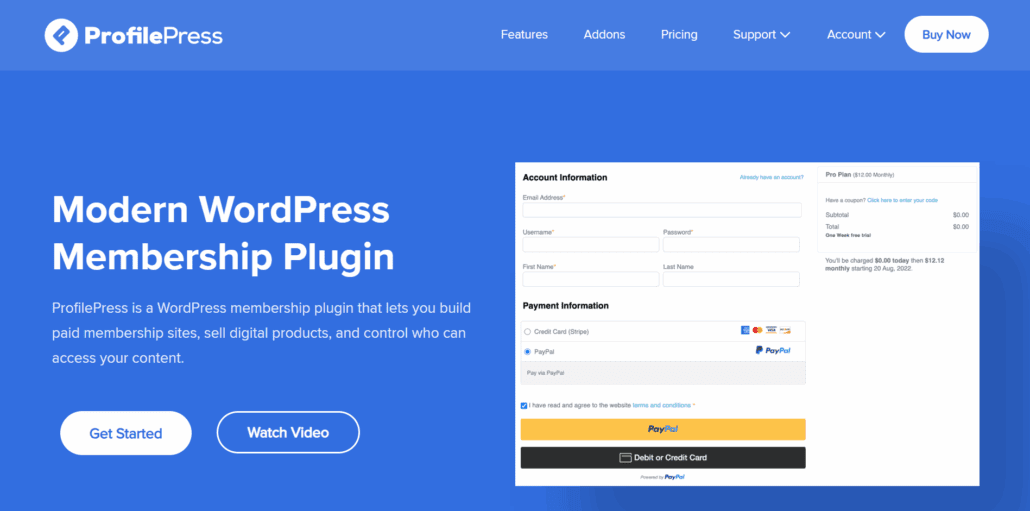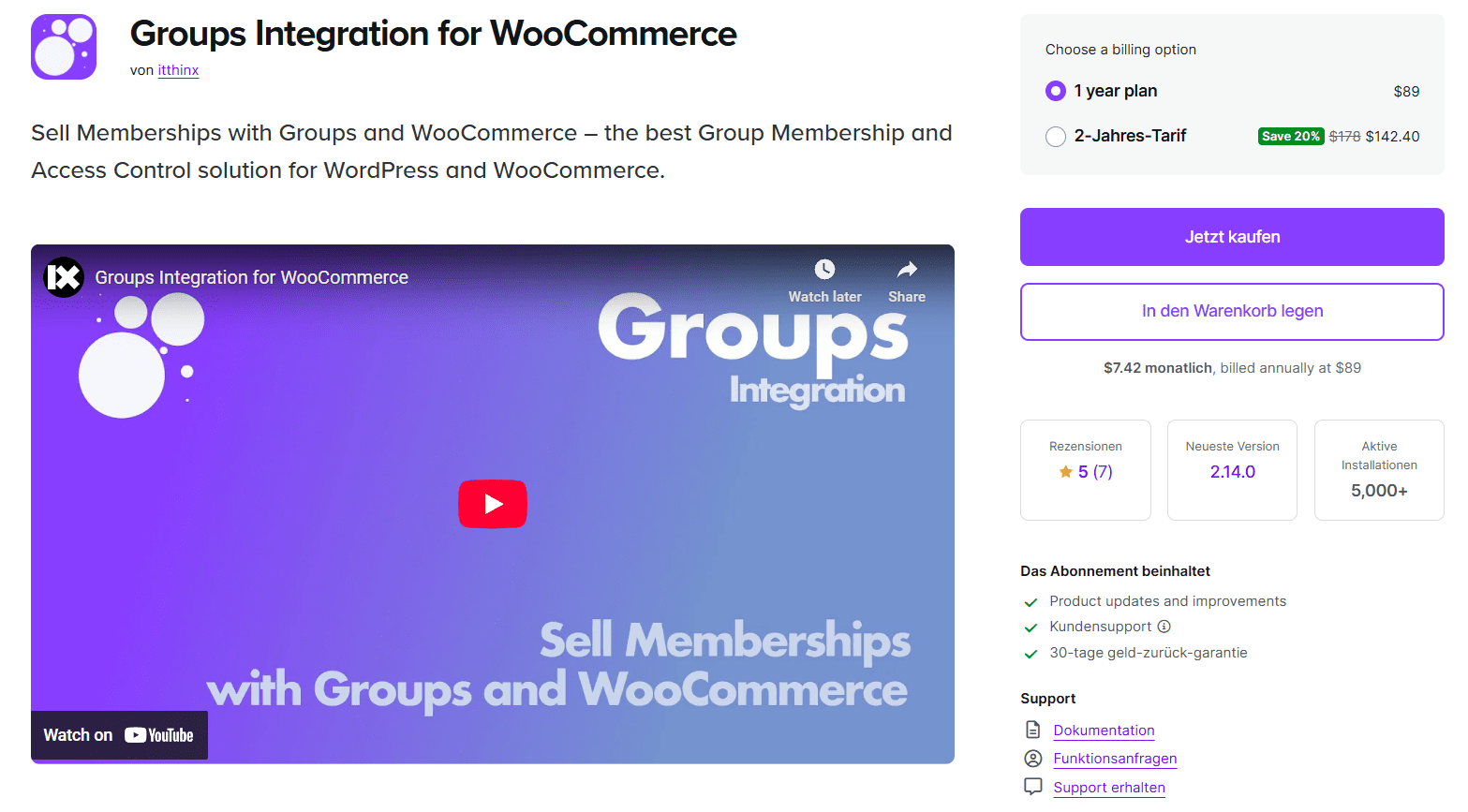
Subscription and Membership Plugins for WooCommerce That Scaled in 2025
Subscription and membership plugins offer WooCommerce store owners a path to generate recurring revenue and build ongoing customer relationships. These plugins enable businesses to offer recurring billing, exclusive content, and personalized experiences that can help increase customer lifetime value and strengthen brand loyalty.
In 2025, selecting an appropriate plugin may help transform a basic store into a subscription-based business. Whether you’re selling digital products, physical goods, or gated content, the right tool can help streamline management, automate renewals, and potentially reduce churn. This guide examines popular WooCommerce subscription and membership plugins to help you evaluate options for your business.
The chart shows the estimated adoption trends for subscription and membership plugins in WooCommerce stores from 2022 to 2025. Industry reports suggest usage has grown steadily during this period, reflecting a broader market shift toward recurring revenue models. This trend is driven by customer demand for personalized experiences and business owners seeking more predictable revenue streams.
What Are Subscription and Membership Plugins for WooCommerce?
Subscription and membership plugins are WooCommerce extensions allowing store owners to sell products, content, or services regularly. These tools can help build predictable revenue streams and foster deeper customer engagement. Subscription and membership plugins often automate billing, renewals, and access control tasks, which may reduce manual work and provide a more consistent experience for both store owners and subscribers.
They typically enable customization of membership levels, offer time-based access to digital products, and support various billing cycles. Whether you’re considering a subscription box service, an online learning platform, or a gated content site, these plugins can provide flexibility and control for recurring business models.
Common functions include:
- Enable recurring billing for products, services, or digital content
- Automate member management and access control
- Support multiple pricing tiers and benefits
Why Consider Subscription and Membership Plugins for Your WooCommerce Store?
Subscription and membership plugins can give WooCommerce store owners tools to create consistent revenue streams. Instead of relying solely on one-time purchases, these models may provide ongoing income through monthly or yearly renewals. This predictability often makes managing cash flow, planning growth, and investing in customer experience improvements easier.
These plugins may also help deepen customer relationships. Members and subscribers often feel more connected to brands, particularly when offered exclusive access, rewards, or personalized content. The result can be increased customer lifetime value, potentially reduced churn, and a more engaged community around your products or services.
Potential benefits include:
- More predictable monthly or annual revenue streams
- Opportunities for deeper customer engagement and loyalty
- Potential upsell opportunities with premium content or perks
How Subscription and Membership Plugins Have Evolved in 2025
In 2025, leading WooCommerce subscription and membership plugins will have typically evolved with improved automation, scalability, and better integrations. These enhancements have helped merchants manage larger user bases more efficiently, offering more flexible billing options, detailed analytics, and complex membership structures that can support long-term growth strategies.
Common enhancements have included:
- Automated proration for upgrades and downgrades
- Improved integration with payment gateways
- Enhanced analytics and reporting dashboards
- Support for more complex membership hierarchies
WooCommerce Subscriptions
WooCommerce Subscriptions is the official WooCommerce extension for recurring payments. Many store owners use it to support various billing intervals, free trials, and automatic renewals. The plugin integrates with popular payment gateways and allows you to manage subscriptions directly from your WooCommerce dashboard.
WooCommerce Subscriptions are often chosen for their flexibility, reliability, and integration with other WooCommerce plugins. It can work well for stores selling subscription boxes, SaaS products, memberships, or digital products.
Key features:
- Flexible subscription intervals (daily, weekly, monthly, yearly)
- Automatic recurring billing and renewal management
- Free trials and sign-up fees
- Supports manual and automatic payments
- Detailed reporting and customer management tools
Implementation consideration: While powerful, WooCommerce Subscriptions can be complex to configure for stores with multiple product types. Test thoroughly in a staging environment before launch.
YITH WooCommerce Subscription
YITH WooCommerce Subscription is a subscription management plugin that offers a user-friendly interface for creating and managing recurring payments. It allows you to create variable or simple subscriptions, set up trial periods, and manage recurring payments.
YITH may be particularly suitable for international stores or those already using other YITH plugins. Its flexibility and support for multiple payment gateways can make it a viable choice for growing businesses.
Key features:
- Create variable or simple subscription products
- Set up free trials and sign-up fees
- Automatic renewal management
- Integration with popular payment gateways
- Works with other YITH WooCommerce plugins
Implementation consideration: YITH’s subscription plugin works best when your theme is compatible with YITH’s styling. Some themes may require additional CSS customization for optimal display.
Paid Memberships Pro (WooCommerce Integration)
Paid Memberships Pro is a membership plugin that integrates with WooCommerce to sell memberships as products. It performs well for content restriction, tiered membership levels, and recurring billing, making it suitable for online communities, e-learning platforms, and digital publishers.
Its WooCommerce integration allows you to combine membership management capabilities with WooCommerce’s e-commerce features, potentially providing a more unified checkout and member experience.
Key features:
- Sells memberships as WooCommerce products
- Content dripping and restriction by membership level
- Multiple membership tiers and customizable access
- Automated recurring billing and renewals
- Reporting tools and integration with popular gateways
Implementation consideration: PMP’s strength in content restriction can make the initial configuration complex. Plan your membership structure carefully before configuration, as changing levels later can affect existing members.
WooCommerce Memberships
WooCommerce Memberships is an official extension for converting your WooCommerce store into a membership site. It allows you to restrict content, offer member discounts, schedule content access over time, and create member-only products.
This plugin is often appreciated for its integration with the WooCommerce ecosystem, which can make selling memberships, subscriptions, or both relatively straightforward. It may work well for digital publishers, online course creators, and stores offering exclusive products.
Key features:
- Restrict content by membership level
- Member-exclusive products and discounts
- Content dripping and scheduled access
- Integration with WooCommerce Subscriptions
- Automated member management
Implementation consideration: When using content dripping, test your delivery schedule thoroughly. Members can become frustrated if content doesn’t unlock as expected, so ensure your drip settings align with member expectations.
MemberPress (WooCommerce Integration)
MemberPress is a WordPress membership plugin that integrates with WooCommerce for access control, content dripping, and reporting. The integration allows you to sell membership levels as WooCommerce products, combining membership features with WooCommerce’s checkout and product management capabilities.
MemberPress may appeal to creators, educators, and community managers who need detailed membership rules and reporting capabilities.
Key features:
- Sell memberships through WooCommerce checkout
- Content restriction and drip scheduling
- Flexible membership levels and pricing options
- Comprehensive reporting and analytics
- Integrates with e-learning and email marketing tools
Implementation consideration: MemberPress offers extensive customization options, which can be overwhelming initially. Start with basic membership levels and gradually add complexity as you better understand your members’ needs.
Restrict Content Pro
Restrict Content Pro is a membership plugin that integrates with WooCommerce to offer restricted access to premium content, downloads, and products. Digital publishers and e-learning sites often choose it for its user-friendly interface and flexible access rules.
Restrict Content Pro’s dashboard allows you to create multiple membership levels, offer discounts, and manage member communications.
Key features:
- Restrict posts, pages, and custom content
- Create multiple membership levels
- Offer member-only discounts and perks
- Automated email communications
- WooCommerce checkout integration
Implementation consideration: RCP’s strength is in content restriction, but it may require additional plugins for more advanced e-learning features like quizzes or certificates.
ProfilePress
ProfilePress is a plugin for WooCommerce that combines membership functionality with user profiles and registration forms. It enables you to create custom user profiles, directories, login forms, and restrict content based on membership status.
ProfilePress may work well for stores that need advanced user management, membership capabilities, and front-end profile features.
Key features:
- Custom registration and login forms
- Advanced user profile management
- Restrict content by membership or user role
- WooCommerce compatibility for member shopping
- Member directories and listings
Implementation consideration: ProfilePress offers many customization options for user profiles. Plan your user data collection carefully to comply with privacy regulations in your jurisdiction.
Groups for WooCommerce
Groups for WooCommerce is an official WooCommerce extension that lets you manage memberships using the Groups plugin for WordPress. Customers who purchase designated products are automatically assigned to user groups, granting access to protected content, products, or specific store capabilities.
Key features:
- Assign users to groups via WooCommerce purchases
- Automated and manual group membership management
- Restrict content and products by group
- Group-specific pricing and promotions
- Compatibility with other Groups and WooCommerce extensions
Implementation consideration: Groups for WooCommerce requires the free Groups plugin as a foundation. While this adds flexibility, it also means managing two separate plugins, which may increase complexity for some users.
What Features Often Set Better Subscription and Membership Plugins Apart?
In 2025, more sophisticated subscription and membership plugins typically go beyond basic recurring billing to support long-term growth, flexibility, and improved customer experience. Better plugins often offer advanced features that help WooCommerce store owners manage complex membership structures, analyze customer behavior, and automate workflows. These capabilities can be valuable for scaling operations efficiently without proportionally increasing overhead or technical complexity.
Higher-quality plugins also tend to prioritize seamless integrations and mobile optimization. They often support diverse business models, whether you offer digital downloads, online courses, or subscription boxes, while enabling dynamic access control, content dripping, and detailed reporting. This level of functionality may allow businesses to deliver more personalized experiences in competitive markets.
Features that often distinguish better plugins:
- Automated proration for upgrades and downgrades
- Smooth payment gateway integration
- Comprehensive analytics and reporting tools
- Advanced access control and content dripping capabilities
- Mobile-optimized dashboards and checkout processes
Preparing to Launch or Scale Subscriptions & Memberships
Before launching or scaling a WooCommerce subscription or membership offering, ensuring your store can effectively handle recurring revenue is helpful. Start by clearly defining your value proposition: What makes your offering worth subscribing to? Then, consider the user experience from sign-up through renewal. Is your checkout optimized? Can your systems handle automated billing and customer management? Addressing these foundations may help ensure a smoother start and better position you for sustainable growth.
Focusing on scalable systems and communication strategies becomes increasingly important as your membership base grows. You’ll likely need tools for onboarding new members, presenting premium features, and handling support efficiently. Ensuring your plugins work well with your payment gateways and that your store performs well on mobile devices can help reduce potential friction points.
Readiness checklist to consider:
- Develop a clear value proposition for members and subscribers
- Optimize your WooCommerce store for mobile devices and streamline checkout
- Define membership tiers, benefits, and renewal cycles
- Plan onboarding processes, communication workflows, and upgrade paths
- Verify payment gateways support recurring billing for your use case
- Prepare customer support processes and member management workflows
Choosing an Appropriate Subscription and Membership Plugin
Selecting a subscription or membership plugin for your WooCommerce store typically depends on your business requirements and growth plans. Start by identifying whether you need straightforward recurring billing or a more complex membership system with content restrictions, multiple access levels, and customer segmentation. Understanding your audience and product structure can help guide you toward plugins that offer a suitable balance of features, usability, and scalability.
Testing compatibility with your payment gateways, themes, and other WooCommerce extensions is also important. Look for plugins with good documentation, responsive support, and a history of regular updates. If you’re planning for growth, consider scalability, reporting capabilities, and mobile responsiveness as evaluation criteria. Generally, it is recommended that you use a staging environment to test your setup before going live.
Evaluation factors to consider:
- Align plugin features with your subscription or membership model requirements
- Test integration compatibility with payment gateways and existing WooCommerce extensions
- Review available documentation and support quality
- Consider scalability and management complexity for your team
Common Implementation Challenges and Solutions
When implementing subscription plugins, store owners often encounter several typical challenges that can impact revenue and customer satisfaction. Understanding these common pitfalls and preparing solutions helps ensure smoother launches, reduce customer support issues, minimize revenue leakage from technical problems, and create better overall user experiences that drive long-term subscription growth and retention.
Payment Gateway Compatibility: Not all payment processors handle recurring billing similarly. Test your chosen gateway thoroughly with different subscription scenarios, including failed payments and retry logic. PayPal, Stripe, and other major gateways each have specific requirements for recurring transactions.
Customer Communication: Automated emails for renewals, failed payments, and membership changes require careful setup. Create clear, helpful messaging that explains what’s happening and what actions customers need to take. Consider the timing of these communications; sending renewal notices too early or too late can impact customer experience.
Content Access Management: When restricting content by membership level, ensure your access rules are logical and easy to understand. Test edge cases like expired memberships, partial renewals, and membership upgrades to avoid customer confusion.
Analytics and Reporting: From the beginning, set up tracking for key metrics like churn rate, lifetime value, and renewal rates. These insights are valuable for optimizing your membership strategy over time.
Technical Considerations for Plugin Selection
When choosing a subscription or membership plugin for your website, understanding the technical foundation can help you make more informed decisions beyond just comparing feature lists. These backend considerations often influence your site’s performance, scalability, and long-term maintenance requirements in ways that may not be immediately apparent.
Database Performance: Subscription plugins create additional database queries for access checks. If you expect significant growth, consider how efficiently different plugins handle these queries, especially for content-heavy sites.
Caching Compatibility: Membership content restrictions can conflict with caching plugins. Ensure your chosen plugin works well with your caching setup, or be prepared to configure cache exclusions for member-specific content.
Theme Integration: Some plugins provide styling, while others rely on your theme’s CSS. Consider whether you have the resources to customize the appearance if needed.
Backup and Migration: Subscription data is complex to migrate. Choose plugins that offer good export options and consider how you’d handle data if you need to switch plugins later.
Moving Forward with Subscription Models
Building a successful subscription or membership business on WooCommerce often requires ongoing optimization and attention to customer experience. Start with a simple structure and gradually add complexity as you learn what works for your audience. Monitor key metrics like retention rates, customer feedback, and support ticket volume to identify areas for improvement.
Consider how subscription models fit into your broader business strategy. While recurring revenue can provide stability, it creates ongoing obligations to deliver value to subscribers. Focus on maintaining and improving the experience that justifies the recurring payment, whether exclusive content, member perks, or ongoing service quality.
For store owners looking to complement subscription offerings with pre-launch strategies, demand capture tools can help validate new products before full development. This approach can reduce risk when expanding your recurring revenue offerings and help ensure new subscription products meet actual customer demand.
